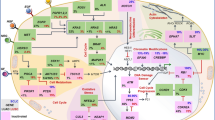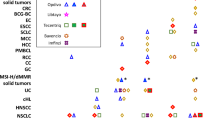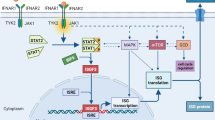Abstract
Background
Although immunotherapy is making rapid inroads as a major treatment method for melanoma, lung, bladder, and hereditary colon cancer, breast cancer (BC) remains one of the tumors yet to experience the cellular immunology explosion despite the fact that heavy lymphocyte responses in breast tumors improve response to therapy and can predict for long-term survival.
Results
Immunotherapies in the form of monoclonal antibodies such as trastuzumab and pertuzumab have had an impact on HER2-positive breast cancer (HER2+BC) treatment through antibody-dependent cellular cytotoxicity. Current evidence suggests that checkpoint inhibitors and other cellular therapies are at the doorstep of improving outcomes in triple-negative BC (TNBC) and HER2+BC, especially when combined with standard therapies.
Conclusions
Although this approach has benefitted small numbers of patients to date, numerous clinical trials are underway to define the relative role immunotherapy may play in the treatment of BC.

Similar content being viewed by others
References
Salgado R, Denkert C, Demaria S, et al. The evaluation of tumor-infiltrating lymphocytes (TILs) in breast cancer: recommendations by an international TILs Working Group 2014. Ann Oncol. 2015;26:259.
Disis ML, Stanton SE, et al. Triple-negative breast cancer: immune modulation as the new treatment paradigm. ASCO Educational Book, 2015. Am Soc Clin Oncol Educ Book. 2015;2015:e25–30. https://doi.org/10.14694/edbook_am.2015.35.e25.
Stanton S, Adams S, Disis M. Variation in the incidence and magnitude of tumor-infiltrating lymphocytes in breast cancer subtypes: a systematic review. JAMA Oncol. 2016; 2:1354–60.
Liu S, Lachapelle J, Leung S, et al. CD8+ lymphocyte infiltration is an independent favorable prognostic indicator in basal-like breast cancer. Breast Cancer Res. 2012;14:R48.
West NR, Kost SE, Martin SD, et al. Tumour-infiltrating FOXP3(+) lymphocytes are associated with cytotoxic immune responses and good clinical outcome in oestrogen receptor-negative breast cancer. Br J Cancer. 2013;108:155–62. https://doi.org/10.1038/bjc.2012.524.
Ali HR, Provenzano E, Dawson E, et al. Association between CD8+ T-cell infiltration and breast cancer survival in 12,439 patients. Ann Oncol. 2014;25:1536–43.
Adams S, Gray RJ, Demaria S, et al. Prognostic value of tumor-infiltrating lymphocytes in triple-negative breast cancers from two phase III randomized adjuvant breast cancer trials: ECOG 2197 and ECOG 1199.
Loi S, Sirtaine N, Piette F, et al. Prognostic and predictive value of tumor-infiltrating lymphocytes in a phase III randomized adjuvant breast cancer trial in node-positive breast cancer comparing the addition of docetaxel to doxorubicin with doxorubicin-based chemotherapy: BIG 02-98. J Clin Oncol. 2013;31:860–7. https://doi.org/10.1200/jco.2011.41.0902.
Dieci MV, Mathieu MC, Guarneri V, et al. Prognostic and predictive value of tumor-infiltrating lymphocytes in two phase III randomized adjuvant breast cancer trials. Ann Oncol. 2015;26(8):1698–704. https://doi.org/10.1093/annonc/mdv239.
Denkert C, Loibl S, Noske A, et al. Tumor-associated lymphocytes as an independent predictor of response to neoadjuvant chemotherapy in breast cancer. J Clin Oncol. 2010;28:105–13. https://doi.org/10.1200/jco.2009.23.7370. (Epub 16 Nov 2009).
Denkert C, von Minckwitz G, Brase JC, et al. Tumor-infiltrating lymphocytes and response to neoadjuvant chemotherapy with or without carboplatin in human epidermal growth factor receptor 2-positive and triple-negative primary breast cancers. J Clin Oncol. 2015;20;33:983–91. https://doi.org/10.1200/jco.2014.58.1967. (Epub 22 Dec 2014).
Ono M, Tsuda H, Shimizu C, et al. Tumor-infiltrating lymphocytes are correlated with response to neoadjuvant chemotherapy in triple-negative breast cancer. Breast Cancer Res Treat. 2012;132:793–805.
Mao Y, Qu Q, Zhang Y, Liu J, Chen X, Shen K. The value of tumor-infiltrating lymphocytes (TILs) for predicting response to neoadjuvant chemotherapy in breast cancer: a systematic review and meta-analysis. PLoS One. 2014;9:e115103. https://doi.org/10.1371/journal.pone.0115103. (eCollection 2014).
Loi S, Michiels S, Salgado R, et al. Tumor-infiltrating lymphocytes is prognostic and predictive for trastuzumab benefit in early breast cancer: results from the FinHER trial. Ann Oncol. 2014. https://doi.org/10.1093/annonc/mdu112.
Dieci MV, Criscitiello C, Goubar A, et al. Prognostic value of tumor-infiltrating lymphocytes on residual disease after primary chemotherapy for triple-negative breast cancer: a retrospective multicenter study. Ann Oncol. 2014;25:611–18.
García-Martínez E, Luengo G, Chaves A, et al. Tumor-infiltrating immune cell profiles and their change after neoadjuvant chemotherapy predict response and prognosis of breast cancer. Breast Cancer Res. 2014;16:488.
West NR, Milne K, Truong PT, et al. Tumor-infiltrating lymphocytes predict response to anthracycline-based chemotherapy in estrogen receptor-negative breast cancer. Breast Cancer Res. 2011;13:R126.
Bouzin C, Brouet A, De Vriese J, et al. Effects of vascular endothelial growth factor on the lymphocyte-endothelium interactions: identification of caveolin-1 and nitric oxide as control points of endothelial cell anergy. J Immunol. 2007;178:1505–11.
Generali D, Bates G, Berruti A, et al. Immunomodulation of FoxP3+ regulatory T cells by the aromatase inhibitor letrozole in breast cancer patients. Clin Cancer Res. 2009;15:1046–51.
Demaria S, Volm MD, Shapiro RL, et al. Development of tumor-infiltrating lymphocytes in breast cancer after neoadjuvant therapy. Clin Cancer Res. 2001;7:3025–30.
Ladoire S, Arnould L, Apetoh L, et al. Pathologic complete response to neoadjuvant chemotherapy of breast carcinoma is associated with the disappearance of tumor-infiltrating FoxP3+ regulatory T cells. Clin Cancer Res. 2008;14:2413–20.
Muenst S, Soysal SD, Gao F, et al. The presence of programmed cell death (PD-1)-positive tumor-infiltrating lymphocytes is associated with poor prognosis in human breast cancer. Breast Cancer Res Treat. 2013. https://doi.org/10.1007/s10549-013-2581-3.
Cortázar P, Zhang L, Untch M, et al. Pathological complete response and long-term clinical benefit in breast cancer: the CTNeoBC pooled analysis. Lancet. 2015;384:164–72.
Raufi AG, Kemplern SJ. Immunotherapy for advanced gastric and esophageal cancer: preclinical rationale and ongoing clinical investigations. J Gastrointest Oncol. 2015;6:561–9.
Pardoll DM The blockade of immune checkpoints in cancer immunotherapy. Nat Rev Cancer. 2012;12:252–64.
Nanda R, Chow LQ, Dees EC, et al. A phase Ib study of pembrolizumab (MK-3475) in patients with advanced triple-negative breast cancer (abstract). In: Proceedings of the thirty-seventh annual CTRC-AACR San Antonio breast cancer symposium, 9–13 Dec 2014, San Antonio, Philadelphia 2015;75(9 Suppl). Abstract nr S1–09.
Wimberly H, Brown JR, Schalper KA, et al. PD-L1 expression correlation with tumor-infiltrating lymphocytes and response to neoadjuvant chemotherapy in breast cancer. Cancer Immunol Res. 2015;3:326–32.
Cimino-Mathews A, Foote JB, Emns LA, et al. Immune-targeting in breast cancer. Oncol Willston Park. 2015;29:375–85.
Sun S, Fei X, Mao Y, et al. PD-1(+) immune cell infiltration inversely correlates with survival of operable breast cancer patients. Cancer Immunol Immunother. 2014;63:395–406. https://doi.org/10.1007/s00262-014-1519-x. (Epub 11 Feb 2014).
Sabatier R, Finetti P, Mamessier E, et al. Prognostic and predictive value of PDL1 expression in breast cancer. Oncotarget. 2014;6:5449–64.
Tomioka N, Azuma M, Ikarashi M, et al. The therapeutic candidate for immune checkpoint inhibitors elucidated by the status of tumor-infiltrating lymphocytes (TILs) and programmed death ligand 1 (PD-L1) expression in triple negative breast cancer (TNBC) Breast Cancer. 2018;25:34–42. https://doi.org/10.1007/s12282-017-0781-0. (Epub 2017 May 9).
Sharma P, Allison JP. The future of immune checkpoint therapy. Science. 2015;348:56–61.
Sørlie T, Tibshirani R, Parker J, et al. Repeated observation of breast tumor subtypes in independent gene expression data sets. Proc Natl Acad Sci U S A. 2003;100:8418–23.
Emens LA, Braiteh FS, Cassier P, et al. Inhibition of PD-L1 by MPDL3280A leads to clinical activity in patients with metastatic triple-negative breast cancer. Abstract presented at: 37th Annual CTRC-AACR San Antonio breast cancer symposium. Cancer Res. 2015;75(Suppl 15). Abstract 2859.
Adams S, Diamond JR, Hamilton EP, et al. Phase Ib trial of atezolizumab in combination with nab-paclitaxel in patients with metastatic triple-negative breast cancer (mTNBC). J Clin Oncol. 2016;20;34(15 Suppl):1009.
Nanda R, Liu MC, Yau C. Pembrolizumab plus standard neoadjuvant therapy for high-risk breast cancer (BC): results from I-SPY 2. Abstract presented at ASCO.
Ma C, Zhang Q, Ye J, et al. Tumor-infiltrating γδ T lymphocytes predict clinical outcome in human breast cancer. J Immunol. 2012;189:5029.
Motz GT, Coukos G. Deciphering and reversing tumor immune suppression. Immunity. 2013;39:61–73. https://doi.org/10.1016/j.immuni.2013.07.005.
Manning EA, Ullman JG, Leatherman JM, et al. A vascular endothelial growth factor receptor-2 inhibitor enhances antitumor immunity through an immune-based mechanism. Clin Cancer Res. 2007;13:3951–9.
Kim HJ, Cantor H. CD4 T-cell subsets and tumor immunity: the helpful and the not-so-helpful. Cancer Immunol Res. 2014;2:91–8. https://doi.org/10.1158/2326-6066.cir-13-0216.
Mortenson ED, Fu YX. Anti-HER2/neu passive-aggressive immunotherapy. Oncoimmunology. 2014;3:e27296. https://doi.org/10.4161/onci.27296.
Datta J, Rosemblit C, Berk E, et al. Progressive loss of anti-HER2 CD4+ T-helper type 1 response in breast tumorigenesis and the potential for immune restoration. Oncoimmunology. 2015;4:e1022301. https://doi.org/10.1080/2162402x.2015.1022301.
Zhu X, Du L, Feng F, et al. Clinicopathological and prognostic significance of serum cytokine levels in breast cancer. Clin Lab. 2014;60:1145–51.
Fracol M, Datta J, Lowenfeld L, et al. Loss of anti-HER-3 CD4+ T-helper type 1 immunity occurs in breast tumorigenesis and is negatively associated with outcomes. Ann Surg Oncol. 2017;24:407–17. https://doi.org/10.1245/s10434-016-5584-6. (Epub 23 Sept 2016).
Sharma A, Koldovsky U, Xu S, et al. HER-2 pulsed dendritic cell vaccine can eliminate HER-2 expression and impact ductal carcinoma in situ. Cancer. 2012;118:4354–62. https://doi.org/10.1002/cncr.26734.
Datta J, Berk E, Xu S, et al. Anti-HER2 CD4(+) T-helper type 1 response is a novel immune correlate to pathologic response following neoadjuvant therapy in HER2-positive breast cancer. Breast Cancer Res. 2015;17:71. https://doi.org/10.1186/s13058-015-0584-1.
Author information
Authors and Affiliations
Corresponding author
Ethics declarations
Disclosure
Dr. Czerniecki has a sponsored research agreement with immuno-restoration and has intellectual property on the DC1 vaccine.
Rights and permissions
About this article
Cite this article
De La Cruz, L.M., Czerniecki, B.J. Immunotherapy for Breast Cancer is Finally at the Doorstep: Immunotherapy in Breast Cancer. Ann Surg Oncol 25, 2852–2857 (2018). https://doi.org/10.1245/s10434-018-6620-5
Received:
Published:
Issue Date:
DOI: https://doi.org/10.1245/s10434-018-6620-5




